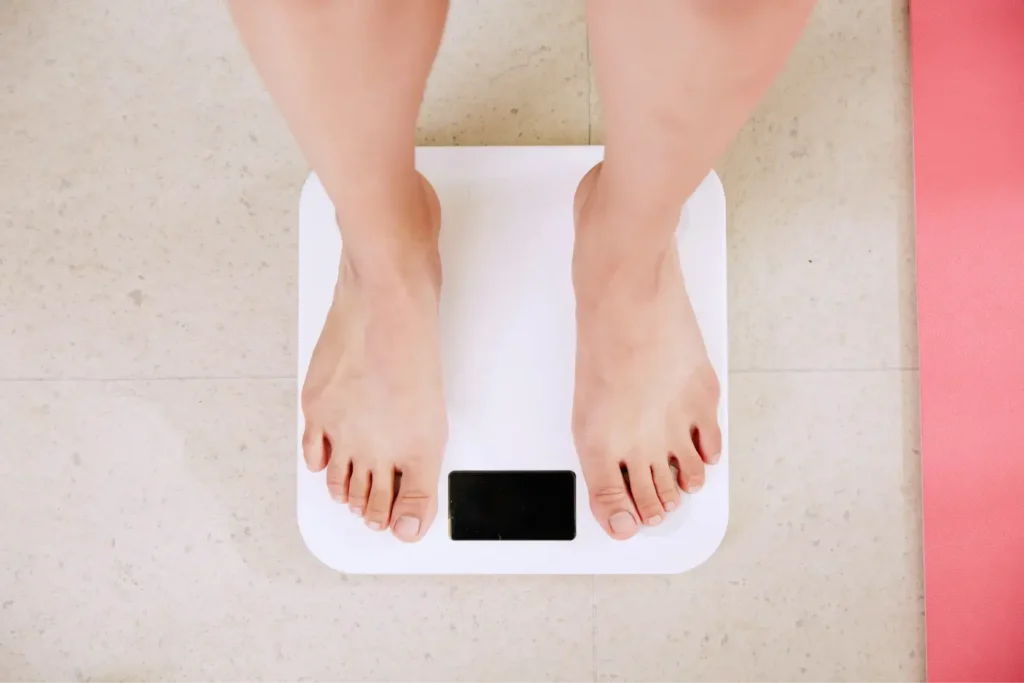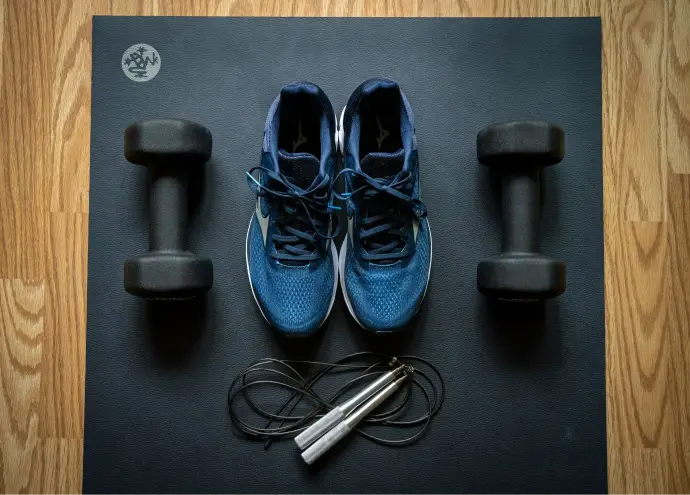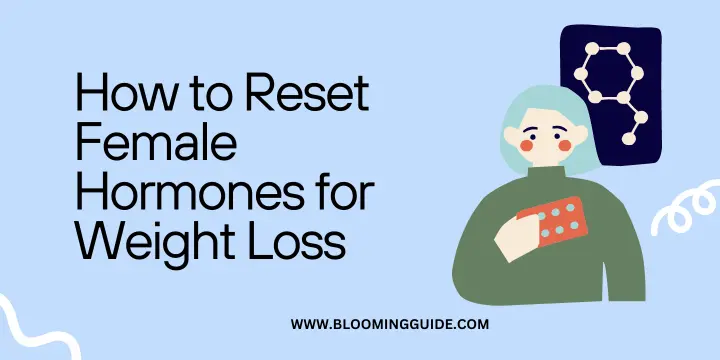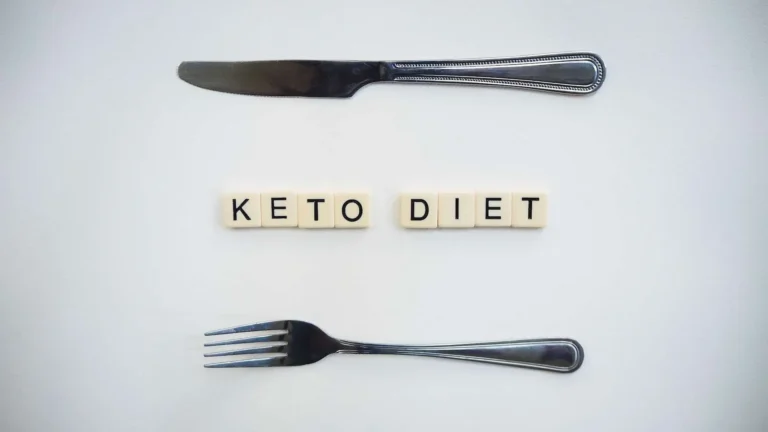How to Reset Female Hormones for Weight Loss in 2024
Forget everything you thought you knew about weight loss.
In a world obsessed with quick fixes and instant gratification, we’ve lost sight of the fundamental truth: sustainable change begins from within.
So, ladies, if you’ve tried every diet under the sun, and sweated through countless workout routines, yet the scale refuses to budge, the missing piece of the puzzle might just be hiding in plain sight—your hormones.
Hormonal balance isn’t just a buzzword; it’s the secret to sustainable weight loss.
These chemical messengers wield immense power over your metabolism, appetite, and fat storage, making them the unsung heroes—or villains—of your weight loss journey.
Hormones and Women: What’s the Link?

From the first blush of adolescence to the graceful embrace of menopause, a woman’s life is marked by a series of hormonal changes. These fluctuations come with mood swings, physical transformations, and yes, even weight fluctuations. Let’s take a closer look at the key hormonal players and the stages they define:
Stage 1: Teen Time & Puberty
Ah, the dawn of womanhood. Remember those awkward years? Blame the hormones! Estrogen and progesterone kick in, shaping your body and bringing on your period. It’s a rollercoaster, but you’re not alone!
Stage 2: Monthly Groove
Your period? It’s like a monthly concert for your hormones. The ups and downs of estrogen and progesterone can affect your mood, energy, and even cravings. Embrace the flow!
Stage 3: Baby on Board
Now things get dramatic! Pregnancy hormones skyrocket, nurturing your little one and preparing you for birth. It’s a wild ride, but worth it, right?
Stage 4: Postpartum Feels
After delivery, hormones take a dive. This can lead to baby blues and fatigue but hang in there – your body is adjusting to motherhood.
Stage 5: The Shift Begins
In your 40s and 50s, hormones start their retirement plan. This “perimenopause” can bring hot flashes, mood swings, and irregular periods. But hey, you’re still rocking it!
Stage 6: Final Act
Around age 51, the curtain closes on hormone production with menopause. It’s a new chapter, and while it can bring changes, remember, you’re strong and adaptable.
Female Hormones and Weight Regulation: A Tabletop Guide
| Key Hormone | Role in Weight Regulation | Hormone Imbalance Impact on Weight Loss | Common Symptoms |
| Estrogen | Influences fat distribution, metabolism, appetite | Lower levels can lead to weight gain, especially around the abdomen | Irregular periods, fatigue, mood swings |
| Progesterone | Balances estrogen, regulates hunger | Higher levels may trigger cravings | Irregular periods, bloating, breast tenderness |
| Insulin | Controls blood sugar, fat storage | High levels promote fat storage instead of burning | Fatigue, increased thirst, frequent urination |
| Cortisol | Known as the stress hormone. Manages stress, impacts fat storage | Chronic stress leads to higher cortisol, increased belly fat | Anxiety, fatigue, sleep disturbances |
| Thyroid Hormones | Regulate metabolism | Underactive thyroid (hypothyroidism) slows metabolism, makes weight loss difficult | Fatigue, weight gain, cold intolerance |
How to Reset Female Hormones for Weight Loss – Step-by-Step Guide!
1. Fix Your Nutrition – Hormone Reset Diet!

- Your diet must include a balance of carbohydrates, proteins, and healthy fats. A healthy diet is important.
- Avoid extreme diets that eliminate entire food groups as they can disrupt hormonal balance.
- Include foods rich in omega-3 fatty acids (salmon, chia seeds, walnuts), fiber (fruits, vegetables, whole grains), and antioxidants (berries, leafy greens).
- Maintain regular mealtimes to help regulate blood sugar levels and minimize stress on the endocrine system.
- Avoid skipping meals, especially breakfast, as it can lead to hormonal imbalances.
2. Stress Management Techniques
- Practice mindfulness meditation or deep breathing exercises to reduce stress levels and promote relaxation. These techniques can help regulate cortisol levels, which are closely linked to hormonal balance.
- Prioritize getting 7-9 hours of quality sleep each night. Poor sleep can disrupt hormone production, particularly cortisol and growth hormones, leading to imbalances.
- Engage in regular physical activity to manage stress and support hormonal health.
- Aim for a mix of cardiovascular exercises, strength training, and flexibility exercises for overall well-being.
3. Environmental Factors and Hormonal Health
- Minimize exposure to endocrine-disrupting chemicals found in certain plastics, pesticides, cosmetics, and household cleaners.
- Choose natural and organic products whenever possible and use glass or stainless-steel containers for food and beverages.
- Keep your living environment clean and well-ventilated to reduce exposure to indoor pollutants.
- Use air purifiers and avoid smoking indoors.
- Use natural cleaning products to limit exposure to harmful chemicals.
Hormone-Specific Approaches to Weight Loss
A. Dealing with Too Much Estrogen:
- Eat veggies like broccoli, cauliflower, and kale, and foods with fiber to help your body handle extra estrogen. Try to avoid sugary and processed foods.
- Use natural cleaning products and avoid plastics to reduce exposure to chemicals that act like estrogen. Use glass or safe plastic for food storage.
- Talk to your doctor about taking supplements that can help your body process estrogen better.
B. Handling Insulin Problems:

- Eat foods that don’t raise your blood sugar too quickly, like veggies, lean meats, and healthy fats. Stay away from sugary foods and refined carbs to help you lose weight fast.
- Try to get moving most days of the week, doing activities that get your heart pumping and build muscle.
- Find ways to relax and manage stress, like deep breathing or meditation. Make sure you’re getting enough good-quality sleep each night.
C. Balancing Thyroid Hormones:
- Eat foods with iodine (like seafood), selenium (found in nuts and seeds), and zinc (like beef) to keep your thyroid healthy. Also, include omega-3 fats and vitamins B and D.
- Try activities like meditation or gentle exercise to lower stress, which can affect your thyroid.
- If your thyroid isn’t working right, your doctor might prescribe medicine to help. Make sure to follow their advice and get regular check-ups.
Implementing a Hormone-Resetting Plan to Lose Weight
A. Personalize Your Plan:
The first step is to understand yourself.
Take a moment to reflect on your body, lifestyle, and health goals. Consider your preferences, challenges, and what motivates you to stay on track.
Next, team up with healthcare professionals, nutritionists, or fitness experts for personalized advice and support. They can help you create a plan that fits your unique needs and healthy weight goals.
Additionally, consider any hormonal issues you may have, such as thyroid imbalances or insulin resistance. Understanding how hormones affect your weight loss journey can empower you to make informed choices.
B. Set Achievable Goals:
Keep it real by setting realistic goals that you know you can reach. Avoid setting overly ambitious targets for your body weight that may lead to frustration or burnout.
Break it down by dividing big goals into smaller, doable tasks to make them more manageable. Celebrate each small victory along the way to keep yourself motivated.
Focus on feeling good by shifting your focus from just losing weight to feeling healthy and happy. Remember that health is about more than just numbers on a scale.
C. Monitor and Adjust:
Track your progress by keeping tabs on your weight, energy levels, and mood to gauge your progress. Tracking your journey can help you identify what’s working well and what may need adjustment.
Stay flexible and be open to adjusting your plan as needed based on your body’s feedback and any challenges you encounter. Adaptability is key to long-term success.
Finally, celebrate success by acknowledging every victory, no matter how small. Recognizing your progress and achievements can boost your confidence and motivation.
Author’s Opinion – Is It Possible to Reset Hormones to Lose Weight?
In my view, yes, it’s possible to reset or balance hormones to aid weight loss.
By focusing on a balanced diet, stress management, regular exercise, and adequate sleep, individuals can positively impact their hormone levels and support weight loss goals.
Consulting professionals for personalized guidance may also be beneficial.
Overall, a comprehensive approach can help balance your hormones and facilitate successful weight loss.
Frequently Asked Questions (FAQs)
A: The key female hormone for weight loss is estrogen. Maintaining balanced estrogen levels is crucial for regulating metabolism and supporting weight management.
A: Three hormones that play a significant role in resetting a woman’s metabolism are estrogen, insulin, and thyroid hormone. Hormones like these interact to regulate metabolic processes and influence weight management.
A: To stop estrogen weight gain, focus on maintaining hormonal balance through lifestyle adjustments such as consuming a hormone-balancing diet, managing stress levels, and staying physically active.
A: Estrogen imbalance can cause weight gain in females. When estrogen levels are too high or too low, it can disrupt metabolic processes and contribute to weight gain. Ensuring hormone balance through lifestyle modifications and, if necessary, medical interventions can help prevent estrogen-related weight gain.







